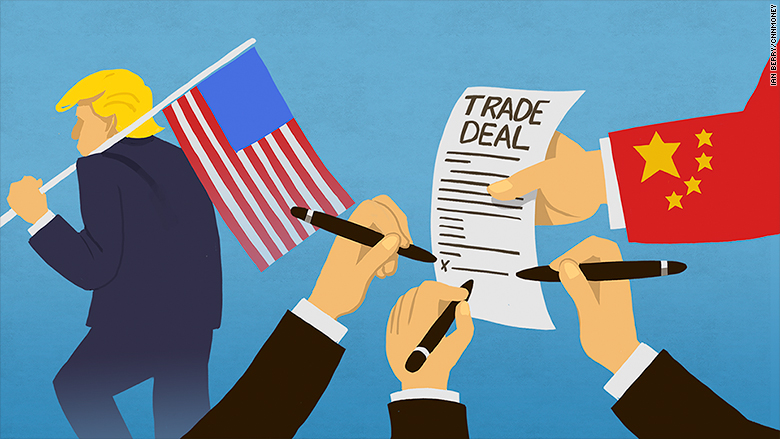
In the aftermath of the Cold War, the U.S. found itself in a hegemonic position on the world stage. With a combination of power and the absence of rival states, America was largely able to shape this stage according to its interests. The occupants of the White House since the early 1990s all aimed to preserve this advantage.
With his “America First” slogan, President Donald Trump appears to be fully committed to this line of thinking. However, the emergence of new centers of gravity in international relations (especially Asia), the crises shaking the United States and its Western allies (Islamist terrorism, the 2007-2008 financial and economic crisis), and the disastrous first year of the Trump presidency have accelerated the realignment of the international order. Not surprisingly, China is the big winner here.
The demographic weight, the economic dynamism, the enmities between states and the absence of a collective regional security mechanism are all factors that place Asia at the heart of international relations in the 21st century. Bearing formidable future prospects as well as the risk of major conflicts, this global change is an inevitable phenomenon that commands sustained attention on the part of Western powers, especially the United States. President Obama well understood this by putting into place a strategy to rebalance American foreign policy toward the Asia-Pacific region.
This strategy was certainly imperfect, notably in terms of its goals. Was it up to Washington to set up a new model of relations between world powers and China? Was the ambition of the Obama administration instead to create a new system of alliances with long-standing partners that felt threatened by Chinese power?
Whatever it was, President Obama did manage to make the United States a long-standing Asia-Pacific player. Much more than a trade agreement, the Trans-Pacific Partnership was to symbolize the durability of Washington’s engagement in the region. By announcing his willingness to withdraw from this agreement upon his arrival in the White House, Trump undermined the credibility of the United States with its Asian allies.
Their confidence in Washington’s willingness to play a leadership and rebalancing role in Asia with an increasingly powerful China was put to the test by this brutal withdrawal. Worse, the Trump administration has not yet set out a clear strategy for Asia and has not filled senior official posts in this region. It is thus hardly surprising that the level of confidence toward the United States in Asia has dramatically fallen over the past year.
As if that weren’t enough, the White House announced early this week that Trump will not participate in the ASEAN summit after his first Asian tour scheduled for early November.* This meeting could have been an opportunity for the American president to reassure his counterparts and to directly address pressing security points with them, ranging from North Korea to tensions in the South China Sea, as well as the fight against terrorism.
Nature abhors a vacuum, so the American disengagement in Asia, as well as on the global stage, leaves the field open to Beijing. Now that Xi Jinping has emerged stronger than ever from the 19th National Congress of the Communist Party, Trump should attend the ASEAN summit (especially since he is scheduled to leave the Philippines, where the summit is held, on the eve of its opening). His absence will only consolidate the perception of a decline, a uselessness, and a loss of credibility of American power.
Since January 2017, the Chinese president has not hesitated to exploit every opportunity to present himself as a leader of the international order and its progress, whether the issue is free trade, the fight against climate change, or the Iran nuclear deal. However, the first year of Trump’s presidency illustrates that the primary threat to American hegemony is not located in Beijing, Moscow, or Brussels, but rather in the Oval Office. Trump still has three years to turn the tide.
*Editor’s note: ASEAN stands for the Association of Southeast Asian Nations and members include Brunei, Cambodia, Indonesia, Laos, Malaysia, Myanmar, Philippines, Singapore, Thailand and Vietnam.

Leave a Reply
You must be logged in to post a comment.